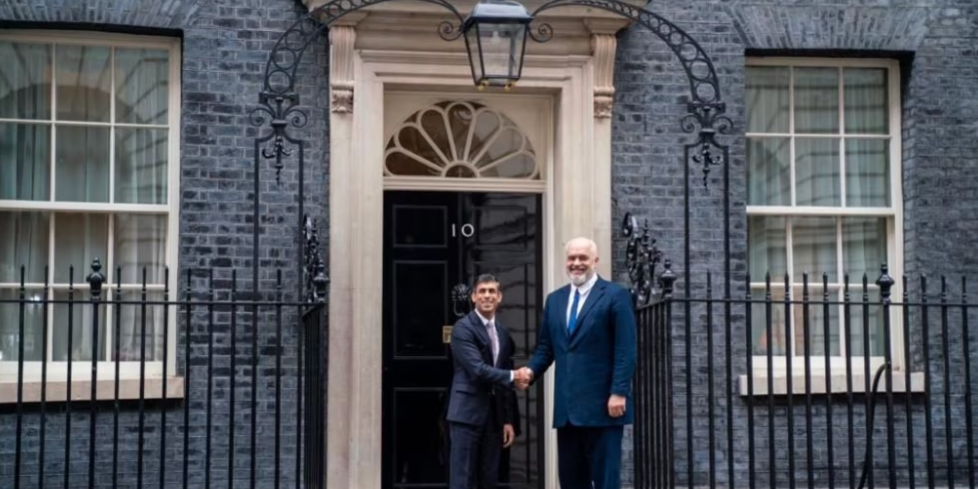TIRANA, March 23, 2023 – Albanian Prime Minister Edi Rama visited London on Thursday in the first ever official visit of an Albanian head of government to 10 Downing Street, but the visit was marred by taking place with the backdrop of the controversy that has been going on for months in Great Britain over the issue of migrants crossing the English Channel to enter Britain illegally.
According to figures from authorities in London, Albanians, mostly young men, represent nearly 25 percent of the total number of migrants who arrived in Britain last year through the Channel route, alongside those from Afghanistan, Iraq or Syria.
Harsh rhetoric against immigrants, and especially the use of words such as “invasion” and “criminals” about Albanians by UK Interior Minister Suella Braverman, led to tensions between Tirana and London last November, with Prime Minister Rama reacting harshly to the categorization of Albanians in such manner.
Even in the statements before the start of his meeting with the British Prime Minister Rishi Sunak, Mr. Rama declared that ” just like, not all British people are ‘James Bond’ or ‘Mr. Bean’, as well as not all Albanians are characters from “Taken,” he said, remembering that there are many Albanians who work hard and have success in all areas of British life, citing the case of the famous singer Dua Lipa as an example.
For this reason, according to Mr. Rama, “we want to make sure that this community feels not only safe, but also honored here,” he said addressing Mr. Sunak, while adding that “rotten apples are our common object to fight and to win this battle.”
Earlier, during an interview for the BBC, Mr. Rama said that “our community has been targeted in this country for political purposes and it was a very, very shameful moment for British politics… We reject and will always reject this. The mixing of some criminals with Albanians as such, since putting an ethnic stamp on the crime is itself a crime.”
Last December, the two prime ministers signed a joint statement committing to combating the phenomenon of illegal migration.
“I am very satisfied with the progress made in this direction,” said the British Prime Minister. While Mr. Rama, for his part, emphasized that “we must do our best to attack criminal networks and also to avoid that innocent people fall into the hook of these networks.”
In the press release from Prime Minister Sunak’s office regarding the meeting with Mr. Rama, it is noted that they “committed to deepening the work within the framework of the Joint Declaration and the Task Force which were agreed upon in December, to advance the common priority in addressing illegal migration and criminal human trafficking gangs.”
According to the press release, “the two prime ministers welcomed the progress made so far, as around 800 illegal migrants have returned to Albania since December, the actions against organized crime and the new United Kingdom guidelines that define Albania as a safe country” .
The departure of many Albanians from the country due to economic impossibility and spaces to ensure a better life is also a topic of debate in Albania. The government has found itself under repeated accusations that it is responsible for the created situation, especially for the departure of young people.
Prime Minister Rama defended his government by arguing that this is a general trend that has affected many countries.
“There are difficulties in Albania, but if anyone thinks that they go abroad and find it easy, they are simply wrong. But I will never tell a young man that, look, you don’t have to think about trying your luck to reach the top of the world,” Mr. Rama said in a meeting with young people last November.
According to the national family immigration survey, for the years 2011-2019, conducted by INSTAT and several international organizations, about 50 percent of the nearly 177,000 emigrants are young people aged 15-29. According to researchers in the field, the main reasons are related to poverty, lack of employment and career development.










